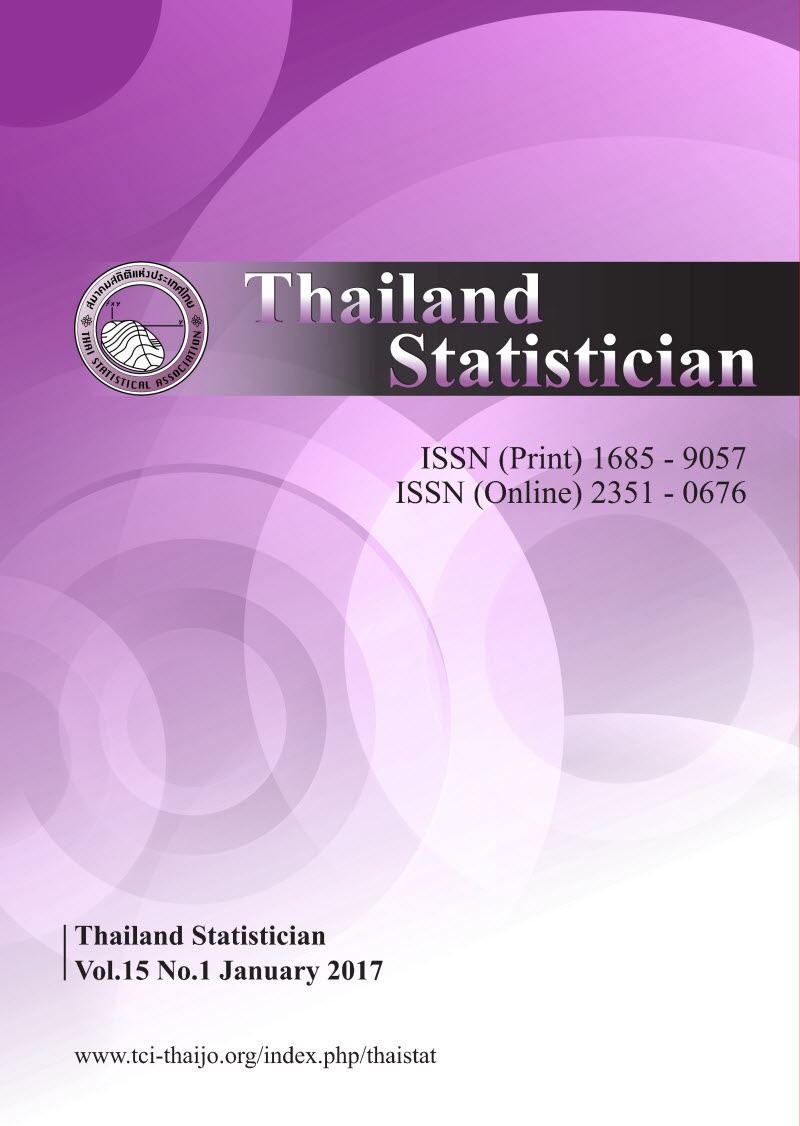Adjusted Estimator of the Sum of Misclassification Errors of Youden’s Index in Sparse Data of a Diagnostic Study
Keywords:
Diagnostic test, misclassification errors, Youden’s Index, zero variance correctionAbstract
Youden’s index as a common measure of the accuracy of diagnostic test is defined by sensitivity + specificity −1 . In estimating the sum of two misclassification errors of Youden’s index, the conventional estimator, defined byDownloads
How to Cite
Soonklang, K., Viwatwongkasem, C., Satitvipawee, P., Busarawong, R., & Srihera, R. (2015). Adjusted Estimator of the Sum of Misclassification Errors of Youden’s Index in Sparse Data of a Diagnostic Study. Thailand Statistician, 8(2), 157–166. retrieved from https://ph02.tci-thaijo.org/index.php/thaistat/article/view/34291
Issue
Section
Articles




